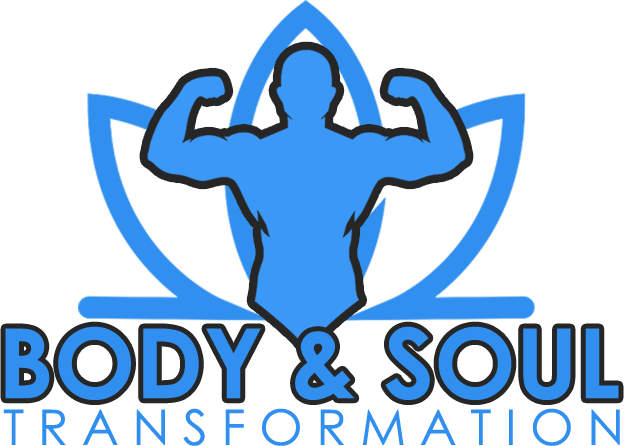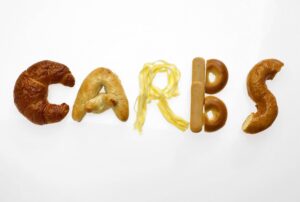Carbohydrates are the main source of energy for the body and at the same time the most controversial product. It seems that society is balancing somewhere between the belief that carbohydrates are bad and should be excluded from the diet, and the idea that carbohydrates are important for maintaining energy levels, and therefore they should not be afraid of, because everything consumed will immediately burn.
Let’s try to understand this subject and structure all the information a little.
Basic facts about carbohydrates
1. Carbohydrates are essential
Carbohydrates are our main fuel. When you eat carbohydrates, your body breaks them down into glucose and other substances. It is glucose that is used as fuel for cells.
Carbohydrates provide energy to all the vital functions of your body, support your brain, and accumulate in your muscles as a ready-made source of energy.
The form of glucose stored in this way is called glycogen, and when you are physically active, it can fuel your body for about one or two hours, depending on the intensity of your workouts.
When you start feeling tired, it means that your glycogen stores are depleted. After you have eaten, your body replenishes these reserves in the muscles again.
2. There are three types of carbohydrates
Carbohydrates are molecules containing carbon, oxygen, and hydrogen. They can be simple (sugar) or complex (starch and fiber), it depends on how many molecules are bound together, as well as their different types.
1) Simple carbohydrates are small molecules. This means that your body digests them quickly. They cause “sugar euphoria”, but this energy is very quickly consumed. As a result, you feel tired and crave more, which is not good.
Examples are sugar, syrups, sweets, sweet breakfast cereals, and cakes. This category also includes products made from white flour-bread, pastries, pies. White flour does not contain sugar per se, but because it is made from grains stripped of all the outer shells and most of the nutrients, and then ground to a fine powder, your body digests it very quickly, and it acts on it in the same way as sugar.
In reality, you don’t need these carbohydrates, except when you’re doing an intense workout, climbing a mountain, or running a marathon. Then they provide a much-needed quick boost of energy.
In a “normal” life, it makes sense to abstain from simple carbohydrates to avoid ups and downs of energy, as well as unwanted weight gain.
2) Complex or starchy carbohydrates combine many molecules in very long chains, so your body slowly breaks them down and gradually releases glucose. This is the best source of energy that will be released during the day, so you should choose these carbohydrates.
They are found in whole-grain foods such as whole-grain bread, oats, brown rice, fruits, vegetables, beans, lentils, and sweet potatoes. These foods are a storehouse of healthy substances — their complex carbohydrates contain fiber, protein, vitamins, minerals and antioxidants.
This means that they give you healthy energy, keep your blood sugar levels stable, and are good for your digestion and overall health.
There is absolutely no reason to avoid these carbohydrates. They should be the foundation of your every meal.
3) Fiber is a diverse group of many types of complex carbohydrates that we can’t digest. Fiber is important because it supports gut health by feeding the beneficial bacteria that live there, slows down the release of energy from foods, and regulates blood sugar and fat levels.
Fiber is absolutely essential for a healthy diet. The good news is that it is an important component of whole plant foods (fruits, vegetables, legumes, whole grains, nuts, and seeds), so if you base your diet on them, you won’t have to worry about a lack of fiber.
3. Sugar is addictive
When you eat sugar, your brain releases the hormone dopamine, which makes you feel good and makes you want to repeat this pleasant experience. This stems from our evolutionary history, because sweet food is a good source of energy, which used to be crucial for our survival.
But now there is too much sugar everywhere, and this joy for the brain is a kind of trap. Many addictive drugs work in a similar way, but the dopamine response to sugar is not as strong as it is to hard drugs. This means that your sugar cravings have a biological explanation, but also that getting rid of the sugar habit is not so easy.
The sugar-responsive brain is one side of sugar addiction, the other is our taste buds – in other words, the level of sweetness we’re used to. It will take time to change it, but once it does, you’ll be surprised how much your taste has changed.
Some people decide to completely abandon sugar, some-just reduce its amount to a minimum. There is no one-size-fits-all approach, so it’s up to you to decide, but gradually cutting back on sweets implies a softer transition than a decisive refusal once and for all.
If you now add a teaspoon of sugar to your tea or coffee, try adding half a teaspoon, and after three weeks, reduce the amount of sugar by half again. Why three weeks? This is how long it usually takes to form a new habit.
4. Low-carb diets are dangerous
Low-carb, ketogenic, or paleo diets are usually based on foods high in protein and fat and strictly limit carbohydrate intake. This causes your metabolism to change priorities and get energy mainly from fat and protein, which causes a decrease in hunger and can lead to weight loss.
Your body may function in this mode for a while, but it’s not the natural way your metabolism works. This is why these diets are only effective for short-term weight loss, but if followed for a long time, they have a number of unpleasant side effects, such as: constipation, headaches, kidney failure, bad breath, increased cholesterol, increased risk of heart disease, cancer, and even premature death (Bilsborough and Crowe, 2003; Farhadnejad et al., 2019; Mazidi et al., 2019).
Key statements
We have evolved to eat complex carbohydrates, so it is best to build your diet on their natural sources, such as whole grains, fruits, vegetables, and legumes (lentils, beans, peas), which gradually release their energy and promote good health by providing us with vitamins, minerals, fiber, antioxidants, and phytonutrients.
On the other hand, refined carbohydrates, such as: white bread, pastries, processed snacks, cakes, sweets, carbonated and sugary drinks, have negative consequences, as they quickly turn into sugar and can contribute to weight gain, the occurrence of heart disease, diabetes and some other chronic diseases. If you use them from time to time, this is not a problem, but they should not become your daily choice.
Our body exists at the expense of carbohydrates, so do not avoid them. Choose good carbs, and you will feel great both physically and mentally, having plenty of energy for the whole day.


